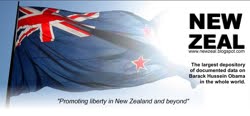"From the halls of Montezuma to the shores of Tripoli" sings the praises of the United States Marine Corps. We fought the Muslim pirates once before, a long time ago, but that victory only lasted 200 years, and now we are dealing with them once again today. Here is a comparison of the two foreign policies that our government has used. The first is a brief extract from Wikipedia.
The First Barbary War (1801–1805), also known as the Barbary Coast War or the Tripolitan War, was the first of two wars fought between the United States and the North African Berber Muslim states known collectively as the Barbary States. These were the independent Sultanate of Morocco, Algiers and Tripoli, which were quasi-independent entities nominally belonging to the Ottoman Empire (except for Morocco which was always fully independent).
Pirate ships and crews from the North Africa's Berber states of Morocco, Tripoli, Tunis, and Algiers (the Barbary Coast), although nominally governed by the Ottoman Empire, were the scourge of the Mediterranean. Capturing merchant ships and enslaving or ransoming their crews provided the Muslim rulers of these nations with wealth and naval power.In March 1785, Thomas Jefferson and John Adams went to London to negotiate with Tripoli's envoy, Ambassador Sidi Haji Abdrahaman (or Sidi Haji Abdul Rahman Adja). Upon inquiring "concerning the ground of the pretensions to make war upon nations who had done them no injury", the ambassador replied:
It was written in their Qu'ran, that all nations which had not acknowledged the Prophet were sinners, whom it was the right and duty of the faithful to plunder and enslave; and that every Muslim who was slain in this warfare was sure to go to paradise. He said, also, that the man who was the first to board a vessel had one slave over and above his share, and that when they sprang to the deck of an enemy's ship, every sailor held a dagger in each hand and a third in his mouth; which usually struck such terror into the foe that they cried out for quarter at once.In October 1803, Tripoli's fleet was able to capture USS Philadelphia intact after the frigate ran aground while patrolling Tripoli harbor. Efforts by the Americans to float the ship while under fire from shore batteries and Tripolitan naval units failed. The ship, its captain, William Bainbridge, and all officers and crew were taken ashore and held as hostages. Philadelphia was turned against the Americans and anchored in the harbor as a gun battery.
On the night of February 16, 1804, Lieutenant Stephen Decatur led a small contingent of the U.S.'s first Marines in the captured Tripolitan ketch rechristened USS Intrepid, to deceive the guards on board Philadelphia and float close enough to board the captured ship. Decatur's men stormed the vessel and overpowered the Tripolitan sailors standing guard. With support from American ships, the Marines set fire to Philadelphia, denying her use to the enemy. The bravery in action of Lieutenant Stephen Decatur made him one of the first American military heroes since the Revolutionary War. The British Admiral Horatio Nelson, himself known as a man of action and bravery, is said to have called this "the most bold and daring act of the age."The U.S. Marines web site has recounted an epilogue to the Marine Corps victory in Tripoli by mentioning: "The Marines’ victory helped Prince Hamet Bey reclaim his rightful throne as ruler of Tripoli. In gratitude, he presented his Mameluke sword to Lt O’Bannon."The turning point in the war came with the Battle of Derna (April–May 1805). Ex-consul William Eaton, who went by the rank of general, and US Marine First Lieutenant Presley O'Bannon led a mixed force of eight United States Marines and 500 Greek, Arab, and Berber mercenaries on a march across the desert from Alexandria, Egypt to assault and to capture the Tripolitan city of Derna. This was the first time in history that the United States flag was raised in victory on foreign soil. This action was memorialized in a line from the Marines' Hymn—"to the shores of Tripoli."
The First Barbary War was beneficial to the military reputation of the U.S. America's military command and war mechanism had been up to that time relatively untested. The First Barbary War showed that America could execute a war far from home, and that American forces had the cohesion to fight together as Americans rather than separately as Georgians or New Yorkers. The United States Navy and Marines became a permanent part of the American government and American history, and Decatur returned to the U.S. as its first post-Revolutionary war hero.
The Tripoli Monument, the oldest military monument in the U.S., honors the heroes of the First Barbary War: Captain Richard Somers, Lieutenant James Caldwell, James Decatur (brother of Stephen Decatur), Henry Wadsworth, Joseph Israel and John Dorsey. Originally known as the Naval Monument, it was carved of Carrara marble in Italy in 1806 and brought to the U.S. as ballast on board the USS Constitution ("Old Ironsides"). From its original location in the Washington Navy Yard it was moved to the west terrace of the national Capitol and finally, in 1860, to the U.S. Naval Academy in Annapolis, Maryland.
"This famous sword became part of the officer uniform in 1825, and remains the oldest ceremonial weapon in use by United States forces today."
"The Battle of Derna was the Marines' first battle on foreign soil, and is notably recalled in the first verse of the Marines’ Hymn: "From the Halls of Montezuma to the shores of Tripoli, we fight our country’s battles in the air, on land and sea." "
So much for our past glorious history. Now we all need a wake-up call. We have another problem with Muslim pirates only this time they are coming from Somalia on the Eastern edge of Africa. Somalia has not had a functioning government for over a decade. It is bordered by Djibouti to the northwest, Kenya to the southwest, the Gulf of Aden with Yemen to the north, the Indian Ocean to the east, and Ethiopia to the west.
Mike Piccione, Editor, Guns & Patriots, just sent out this email tidbit on how the U.S. government is handling the Somali Muslim pirates, today. Makes you wonder why we never seem to defeat this scum once and for all. Damn, it must be that Hollywood influence again, you know, never kill off all the bad guys if you can make a profit from a sequel.
Just so you know the US Government taxpayer forks over roughly $460,000,000 a year to the Government of Somalia for grants, economic and military aid. I recently heard our generous Feds send 80,000 tons of food a month to Somalia, but I can't confirm that number. Interestingly enough, Somalia has one of the highest birth rates in the world at 6.17 kids per woman. This ensures there will be a US Government funded pirate program for a long time to come. According to the CIA Somalia imports 58% of their goods from UAE, 20% from Yemen and 4% from Saudi Arabia. In short, we feed them and they make lots of babies and they take the money we give them and they buy stuff from Middle Eastern countries. Arrrgh…me thinks it's time to stop the funding to Somalia, matey.
You just can't make this stuff up.
Stay loaded my friends,
Mike Piccione
Editor, Guns & Patriots
Tuesday, April 5, 2011
Then and Now: How our government has responded to Muslim pirates.
Subscribe to:
Post Comments (Atom)























No comments:
Post a Comment
No foreign language comments allowed. English only. If you cannot access the comments window send me an email at Oldironsides@fuse.net.